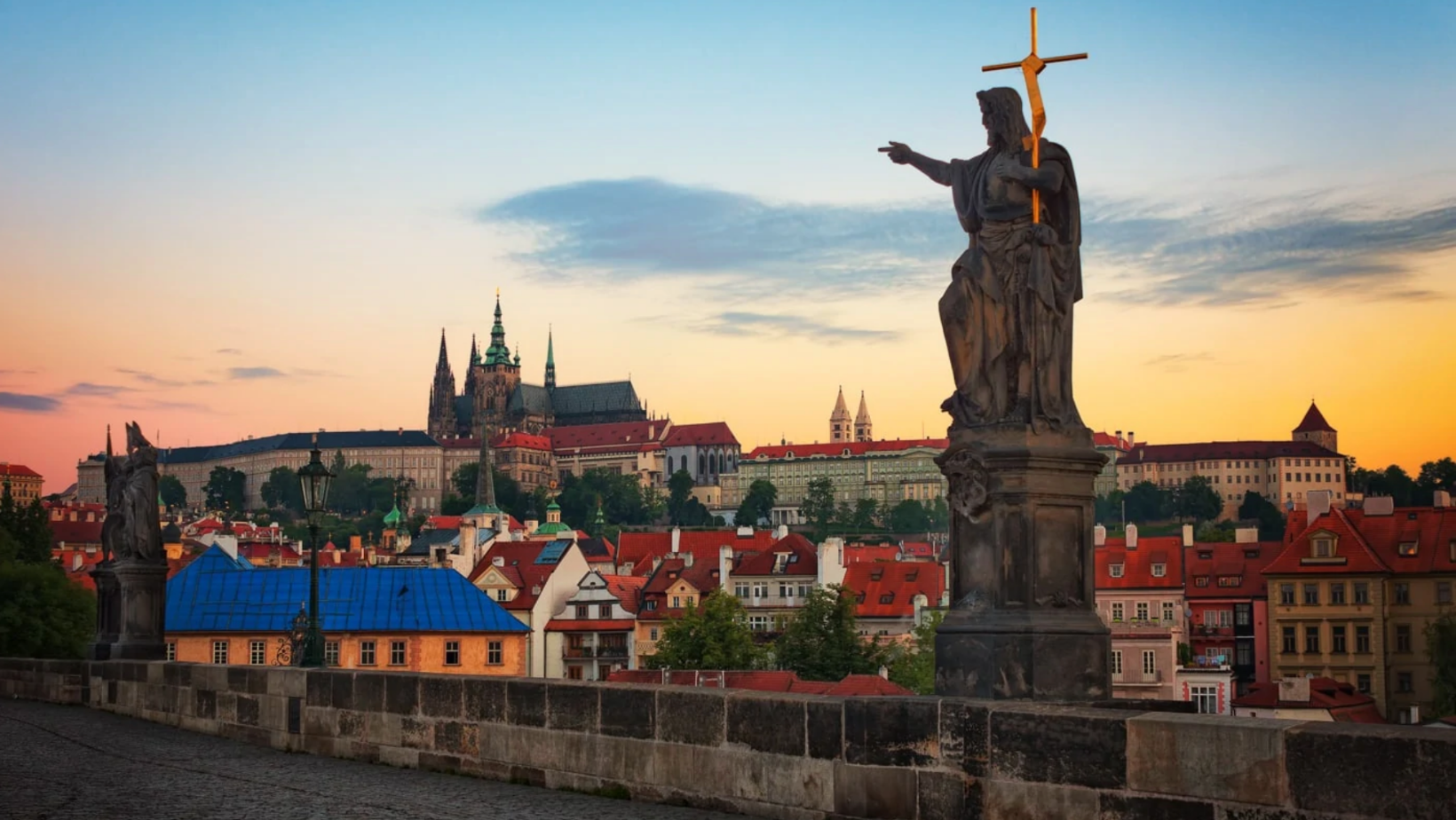By: Samuel Dempsey
When talking to Czechs, most people say they are irreligious, in fact, 66% of the country says they do not believe in god, and 25% identify as atheists.
Yet, when you look under the surface and examine history, one of the so-called most atheistic countries in the world looks far less atheistic.
More accurately, Czechs hold an individualized unconventional spirituality un-dictated by the state of the world.
According to Dr. Zdeněk Vojtíšek, the head of the Department of Religious Studies at the Hussite Theological Faculty of Charles University, Czechs do not trust institutions, especially religious institutions. “They hesitate to be members of any institution or any church,” he said. “Such denial is often expressed by the sentence, I am an atheist.”
However, Dr. Vojtíšek elaborates that if atheism is a denial of the transcendental reality, Czechs are the polar opposite. The statement of atheism is a statement of societal solidarity in identifying as Czech, not one of spiritual rejection. “Czechs are very strong in finding out different kinds of predictions, prophecies, healing, energy healing, natural healing, and positive thinking,” he said.
Moreover, unlike most of the rest of the world, Dr. Vojtíšek does not believe the pandemic has positively affected the Czechs’ levels of spirituality or religious faith.
Religion has been declining over the last few decades, but with COVID-19 many people began to search for certainty in the existential. So much so that 30% of the U.S., 16% of Spain, and 10% of South Korea have developed a stronger faith since the beginning of COVID-19. All are commonly-known religiously engaged societies, whereas the Czech Republic has remained unchanged in its high levels of spiritual engagement.
When walking around Prague to gather opinions from Czech people on religion and spirituality in the Czech Republic, it was surprising the level of hesitation or pure refusal to engage in this discussion, as they conveyed this topic to be too ‘sensitive.’
Nevertheless, after wondering about it, 14 people were kind enough to discuss religion, but still, they preferred to remain anonymous given the stigma around faith.
To no surprise, 57% of people answered that they were not religious at all. They referred to religion being ‘wrong,’ that churches are ‘evil,’ that religion is ‘out of date,’ and that the words ‘faith in god’ are even ‘vulgar.’
On the other hand, 36% of people considered themselves to be religious. One man happened to be a priest who felt religion is on the rise in the Czech Republic. “I was surprised that there’s a good amount of people in the churches,” he said. “I’m meeting older people who are believers, and young people who are believers…I’ve seen people have an ignited faith, a passion, and a joy for the Christian faith.”
One Jewish woman expressed a great sense of solidarity from the community in Prague during COVID, describing people helping the sick and praying online; however, she said the majority of the 2,000 Jews in Prague are not active in their religious faith. “Most of those in the community show up to the synagogue maybe two to three times a year,” she said.
The other surprising response was that 50% of the people queried said they are spiritual or very spiritual.
Most, regardless of their own beliefs, felt that spirituality was on the rise in the Czech Republic, but of those who felt spiritual themselves, they had a very unique way of approaching the transcendental. One man even said he believes in something similar to Valhalla from Norse mythology.
What was even more unique to the Czech Republic, was just as Dr. Vojtíšek predicted: 60% of those who expressed any inclination for religion or spirituality prior to the pandemic had either no change in faith or a drop in religious faith and spirituality since the beginning of the pandemic.
Dr. Vojtíšek traces the causes for the skeptic Czech atheistic identity back a hundred years. “During the Austrian-Hungarian empire, the Czechs felt that they were oppressed, and they were seeking liberation,” he said. “So the Czechs, in hopes to establish their own state and to be an established nation again, fought not with the Austrian-Hungarian empire physically, but ideologically, by opposing the Roman Catholic Church.”
Reverend Tomáš Halík, a Czech Roman Catholic priest, philosopher, theologian, and former communist dissident was kind enough to share a speech he gave to Boston College about the state of religion in the Czech Republic in which he deciphers the more recent history.
Halík describes the first major break in faith was during communism when, “Many priests exchanged their Christian faith for nationalism, declaring faith to be ‘work for the nation.’ The nation became their god.”
He then attributes the second break when Catholicism began its ‘crusade against modernism,’ in which a large part of the educated sections of the population left the church.
Halík described this ‘crusade against modernism’ as not just a break of faith in the Czech Republic, but a split within the Catholic church: one half in the Catholicity, who are strict in tradition, unwavering to concepts like same-sex marriage, or abortion, and in the other half, Catholicism open to change and conversation with outsiders.
The Czech Archbishop Cardinal Dominik Duka represents today the conservative aspects of the church.
He was quoted in the Catholic News Agency saying, “I would like to tell the Catholic world not to be afraid of its tradition.” Traditions in referencing his own affirmations around strict gender ideology.
Despite overt communism having left this country 30 years ago there is still a great faltering of religious faith and lack of religious uniformity. Halík attributes this to the way in which missionaries evangelize in the Czech Republic.
He describes two main types of missionaries, the fundamentalist evangelical Christians from the United States “brandishing a bible in one hand and a hamburger in the other,” and the conservative Catholics from the West who showed up expecting to be welcomed as heroes. To Halík, both fail in the Czechs’ state of natural skepticism.
Even so, Halík’s hope remains. “Christianity is possible in a highly secularized society,” only when evangelization is not regarded as “indoctrination, but as inculturation.”
Similarly but so very different, Cardinal Dominik Duka is also optimistic for a rise in faith as he said to the Catholic News Agency, “In a way, I must say that many people have found contact with the Church and worship, many even after decades of disinterest. I also saw a greater interest in a common family religious life, such as family prayer, common catechesis, and an interest in Christianity in general. So I am optimistic in this regard.”
Dr. Vojtíšek more realistically views Czech as ahead of the rest of the world. “The other societies in Europe are going the same way, the role of the churches is in a spiritual crisis,” he said.
Whereas much of the rest of the world hasn’t fully lost its idealistic viewing of religion, the Czechs have and thus the U.S., Spain, South Korea have more faith when life doesn’t go their way, unlike the Czechs who are familiar with where that story ends and opts for a more individual approach.
“The Czechs’ religious state is not extraordinary, only a few steps further in the future,” said Dr. Vojtíšek.
-
NEWSLETTER
Subscribe for our daily news











